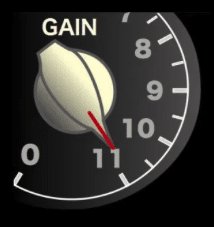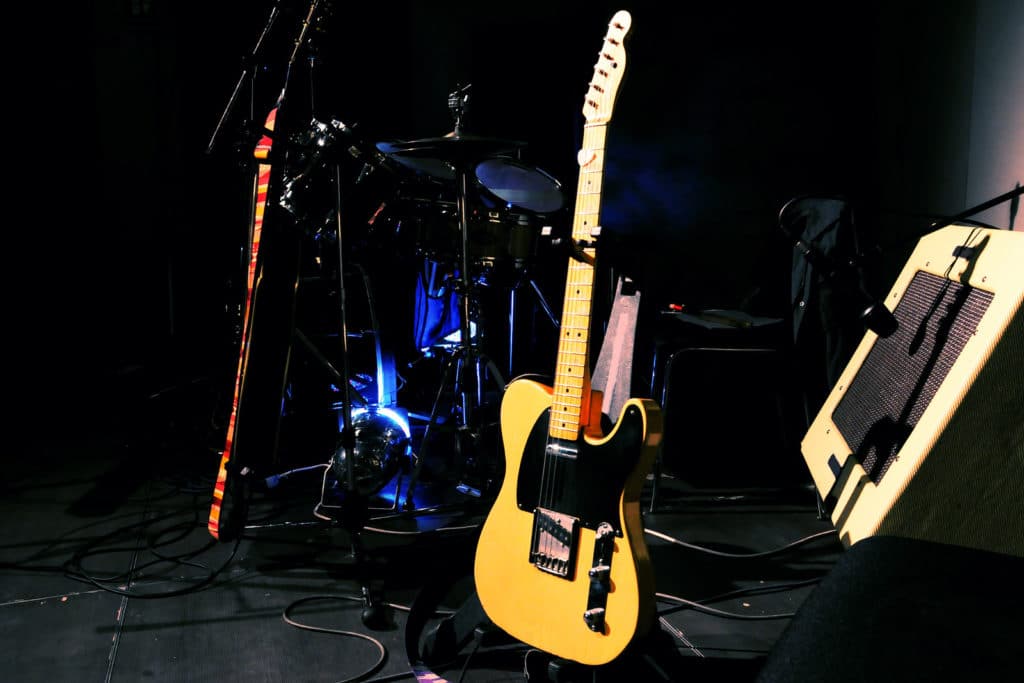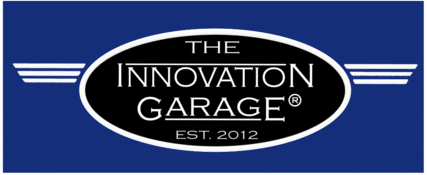“The math of the real world is one and one equals two…That keeps the world spinning… when the world is at its best, when we are at our best when life feels fullest, one and one equals three. It’s the essential equation of love, art, rock’ n’ roll, and rock’ n’ roll bands“
Bruce Springsteen, from his autobiography, Born to Run
FIrst, a preamble to set the stage.
Regardless of your thoughts on liking (or not liking) a specific musician, type of music, or band, you can always learn something.
To make some forward progress:
- Be brave enough to recognize and honor a difference in opinion.
- Decide to push past any dissonance when someone has a differing viewpoint.
- See what learning is possible.
The premise of this article will focus on sharing specific insights behind the magic of grit and perseverance. It’s entirely possible that what we will share may resonate and be helpful.
So, with that out of the way, we wanted to dive into how in the world can you make one and one equal three?
Is music important to you?
Do you consider music an essential element of life and a force all its own?
Do you find music helpful to motivate yourself and others?
Did you or do you aspire to play an instrument?
Are you now, or have you ever been in a band?
Were you ever brave enough to give it a shot, playing live with your band in a local bar scene?
If you do, did, or have done any of these things, you know absolutely, and without a doubt, how difficult it is.
How difficult it is; to step in front of a group and show them what you’ve got.
How difficult it is; just to have the patience to persevere and carry on.
What we find impressive is Springsteens’ over-the-top work ethic. Both in his career and on tour. His consistent three-to-four-hour stadium shows have evolved to the stuff of legend. Much of this comes directly from the grit focusing on one thing, honing your craft and playing live for over 50+ years.
Using that work ethic as a baseline, we think it can inform some insight. If you can understand the effort and grit required, you can respect the work ethic. Maybe as well, learn something from it. Even if you may (or may not) be a fan of the music, or the political viewpoints of a public figure.
Perhaps too, we can connect some dots that maybe unconnected for you until reading this article.
Are your teams struggling with creativity?
At The Innovation Garage®, we’re genuine fans of working with diverse teams and organizations to create things. We always try to play not-to-lose, and push our clients to bigger and better places. It’s fun. It’s exciting and, saying the least, challenging. We’ve learned that it’s the blend of hard AND soft skills that help teams excel and succeed in their efforts.
Many times teams are struggling with creativity. When that happens, you have to stop. You have to stop by asking questions, and dig deeper. It is beneficial to understand “what else” the team members do outside of their day-to-day role as individual contributors.
Asking the “what else” questions breaks the team up to think of things outside of the day job. “What else” questions also provide a source of diversity to inspire different directions. “What else” can illuminate other ways to solve challenges. When we observe stuck teams, there is one particular type of person we seek out.
We’ve observed time and again, when teams are struggling to find a new way, seeking out or adding some musicians on the team is a big help. Musicians can help the team get outside of the box for a better solution. The musicians on your team can be an untapped source of insight and connection. They can get you out of a significant challenge, especially if you are building something new.
Adding a musician or two has often moved the team forward on the trajectory towards the place they need to be.
Are musicians brains more connected in some way? In short, the answer is yes.

What’s cool is that some recent neuroscience research now backs these observations. While it might seem obvious, the studies indicate that musicians have some things in their toolbox that other non-musicians don’t have.
The first research study, from the Journal of Neuroscience and Neurosciencenews.com, concludes that “…the brains of musicians have stronger structural and functional connections compared to those of non-musicians.”
Practically, this means the musicians may have more of an optimal balance within their brains right and left hemisphere. From the research, you can infer that musicians are usually more comfortable with ambiguity, and they can appreciate both creativity and the need to execute well.
Most importantly, they may persevere for a longer period to get to the desired end state more effectively than non-musicians.
Grit, Growth Mindset, and Getting your Reps to a Flow State
The second research study posits that Grit but Not Growth Mindset is Linked to Flow State in Musicians. The study, published in the journal of Music & Science by psychologists at Goldsmiths, University of London, explored the non-cognitive traits which could determine whether musicians can reach the fully-absorbed and satisfying feeling of flow (or being “in the zone”) experienced during a musical performance.
As the article states, “Characterized as a state without self-consciousness, doubt or anxiety, flow is a psychological phenomenon which scientists have only recently begun to understand.”
If you’re curious or are unsure of what a flow state feels like, think about those times you were so engrossed in a specific activity, you lost track of time. If time seemed to slow down or hours went by without you realizing it, that’s a simple example of a flow state.
Why might musicians have more effective skills?
The research focuses on the countless hours of practice and repetition. When someone musically is inclined to get proficient at an instrument. The challenges of understanding the piece of music require very quick thinking. Musicians’ response time from decision to action happens within milliseconds.

Beyond quick thinking, a tremendous amount of dexterity must be present. Fingers need to land at the right place on the piano keyboard or guitar fretboard. There is an amazing amount of independence required when a drummer lays down a new groove. Each hand and foot can be moving independently of the other.
It’s this continuous practice that carves those deep neural pathways in musicians’ brains.
Also, to be successful, musicians that play in bands need to manage themselves well. Self-management includes the give and take within the group. Musicians must collaborate and play well with others.
A good musician knows the importance of when to step back and support. If they do this, their bandmates, and the whole band, can make great-sounding music. If that individual musician doesn’t step back and support their bandmates for the greater good, they won’t last long in the band.
With their instrument, they have continually stepped out of their comfort zone. Musicians must be brave enough to try to learn a musical instrument. This, on its own is a feat in and of itself. If they become proficient, to increase confidence, they then decide to perform in front of others. They try to give their best for a performance of recital. They will give it all they have, even when only a handful of people show up for their set at the local bar.
They are used to failing, falling forward, and learning as part of the process. Most musicians are not afraid to give something a shot and see if it will work.
So, how do you make one and one equal three?
In the simplest terms, the math equation, and its out-of-box answer of three can be very unsettling, especially if you are a scientist and technically trained in university. Math is math.
But if you play in or have played in a band, you’ll instantly get it.
One and one equaling three derives from musicians having grit, perseverance, and demonstrating abilities to collaborate at a level that most non-musicians might not be able to. In its entirety, Springsteen’s observation is a pretty interesting one.

“The primary math of the real world is one and one equals two. The layman (as, often, do I) swings that every day. He goes to the job, does his work, pays his bills and comes home. One plus one equals two.
It keeps the world spinning. But artists, musicians, con men, poets, mystics and such are paid to turn that math on its head, to rub two sticks together and bring forth fire. Everybody performs this alchemy somewhere in their life, but it’s hard to hold on to and easy to forget.
People don’t come to rock shows to learn something. They come to be reminded of something they already know and feel deep down in their gut. That when the world is at its best, when we are at our best, when life feels fullest, one and one equals three.
It’s the essential equation of love, art, rock ’n’ roll and rock ’n’ roll bands. It’s the reason the universe will never be fully comprehensible, love will continue to be ecstatic, confounding, and true rock ’n’ roll will never die.”
BRUCE SPRINGSTEEN, FROM HIS AUTOBIOGRAPHY, BORN TO RUN
What can I do for myself and to fire up my team?
As for yourself, pick up and dust off that instrument you always wanted to play. Join a band, and make some joyful noise. We promise it will be good for you.
If you’re stuck on a big challenge in your organization, then do what we would do. Ask a few “what else’ questions. Find out who on the team likes to create music. If you want to amp up creativity, seek out the musicians for your team. Put those musicians on the case to solve that big challenge.
Get with those musicians, rub two sticks together, bring forth fire, and make one and one equal three!
What’s new at The Innovation Garage®?
The Innovation Garage has a refreshed new events calendar. Our programming includes local live programs and digital remote learning. These experiences will help both you and your teams build your organization’s capability to grow. We’ve learned a ton and we believe there is a tremendous value in sharing that with you. Check out our public programs, both live and virtual, or reach out to us about a custom program for your organization.
#mindset #grit #emotionalintelligence #strategy #leadership #innovation #growth #theinnovationgarage
We help organizations grow! We build strategy. We build ideas and coach the innovation capability of teams. We design products, services and supply chains. We guide leaders from non-profit, government, startups and the Global Fortune 500 to intentionally self-disrupt their offerings and organizations. We provide world-class education, tools, technology, and expert consulting to craft operating systems focused on the long-term.
To learn more, visit us here, check out our calendar of events, or reach out to us and discuss a private program for your organization.
Estimated reading time: 9 minutes
